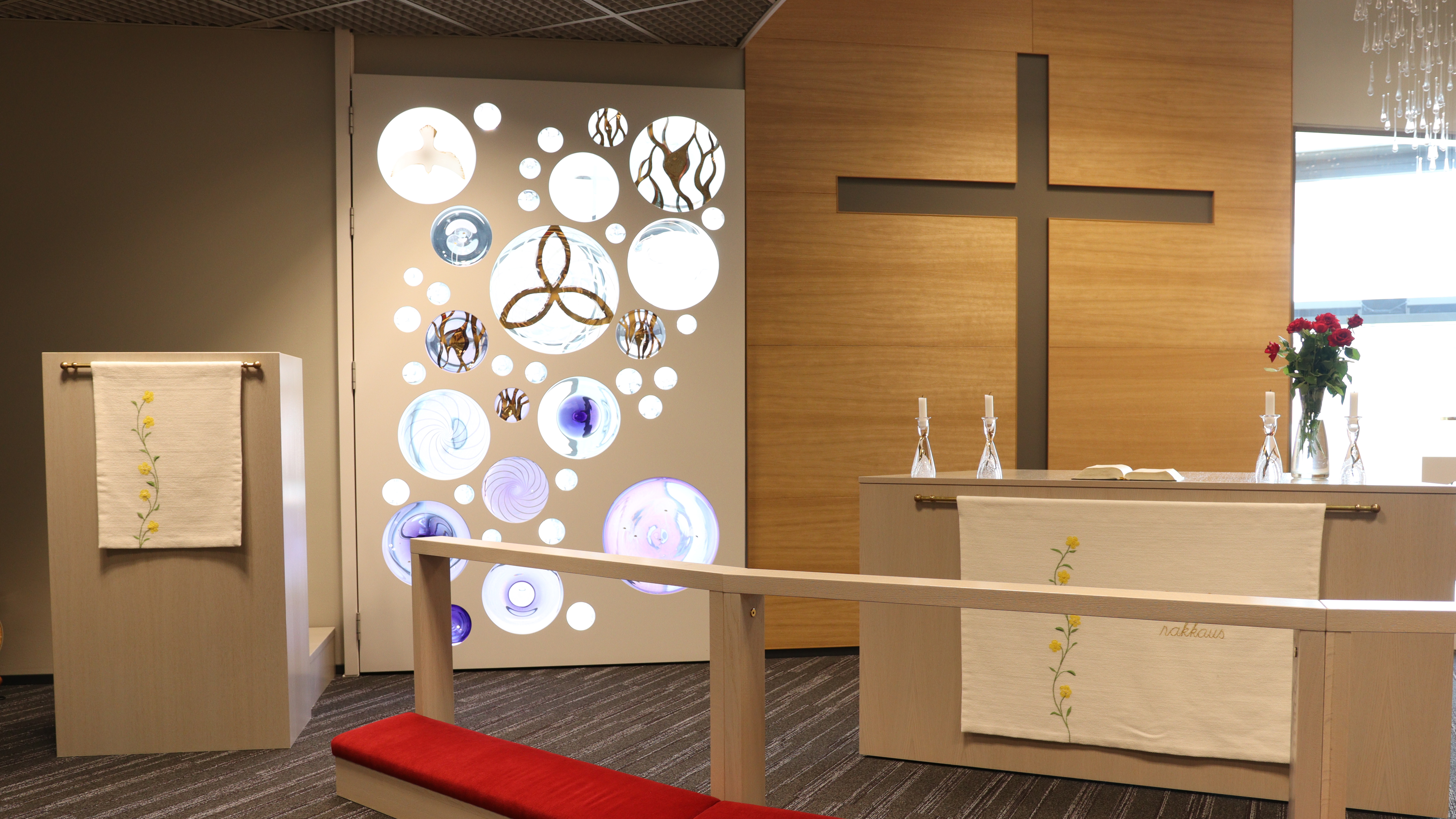Support during your sentence term
During your prison term, you may receive psychosocial support from the staff of the prison or organisations outside the prison. You have the right to practice your own religion during your prison term.

In prisons, individual psychosocial work or pastoral counselling are carried out in particular by psychologists, chaplains, social workers and senior instructors.
- Psychologists offer counselling, support, treatment and therapy during your sentence term.
- Social workers and senior instructors responsible for social work help you take care of matters linked to your life outside the prison. The matters may concern, for example, your children or housing. They also advance your social situation and prepare you for release together with the social welfare, housing and employment authorities and other relevant bodies.
- Prison chaplains and deacons carry out pastoral counselling, which includes social support. Chaplains are bound by the secrecy of confession.
- Senior instructors responsible for substance abuse work carry out individual substance abuse rehabilitation and arrange a possible rehabilitation continuum for you in an outside substance abuse treatment institution.
Psychosocial work also includes family work, which means, for instance, family visits and family counselling, and programmes aiming at social rehabilitation and a life without crime.
The senior prison officials together with your personal official and the specialist staff are in charge of the implementation of your sentence plan. They support and motivate you to live without crime. In addition, they make sure that the activities in prison proceed in accordance with your sentence plan.
Religious practise
All prisoners retain the right to practise their religion while in prison. This right is defined both in Finland's own legislation and in international agreements.
Every prison has a chaplain or deacon or at least a contact person for religious work appointed by the Prison and Probation Service. The main principle is that each closed prison has a church hall, chapel or other similar space. Church services and other religious activities are regularly organised in prisons. In open prisons, prisoners may attend local religious events organised in your locality. You may also have confidential one-to-one conversations with a pastoral counsellor. Various religious volunteers, such as prison missionaries, also visit many prisons.
In prison, the chaplain works in cooperation with representatives of other religions, and you are guided in the practice of your own religion. If you practice a religion other than Christianity, you may also be given the opportunity to meet a representative of your own religion.
Support from organisations outside the prison
You may contact different authorities or other cooperation partners to take care of your social welfare issues or prepare for your release. For example, the employment services and the Social Insurance Institution of Finland Kela can arrange remote or in-person appointments to help you with matters related to employment and benefits.
Some prisons have a municipal social worker available to help prisoners prepare for their release. In addition, you can visit the social welfare office or the employment office in your municipality of residence when you are on prison leave.
Life without Crime Foundation RETS
The Life without Crime Foundation (rets.fi) visits the prisons to talk about the support it offers. You can also get support when you are on prison leave or released.
The Life without Crime Foundation offers advice to you and people close to you. You can get help with issues such as social assistance and benefits, child welfare and visiting rights, rehabilitation and health care, and prison term.
The Life without Crime Foundation visits prisons, provides information and arranges appointments. You can contact the staff of the Life without Crime Foundation by telephone, post or email.
Finnish Red Cross
The Finnish Red Cross , in cooperation with prison staff, organises volunteer prison visitors, group activities, themed events and communal work outside the prison. Group meetings can be discussion groups, study groups focusing on specific topics, or activity groups.
Volunteer prison visitors allow you to establish a relationship with a person outside prison during your prison term. The aim is to support your interaction skills and social development through discussion. The visits are voluntary, and the volunteer visitors are bound by confidentiality. Contact between you and the volunteer visitor ends when you are released.
Published 23.7.2024
